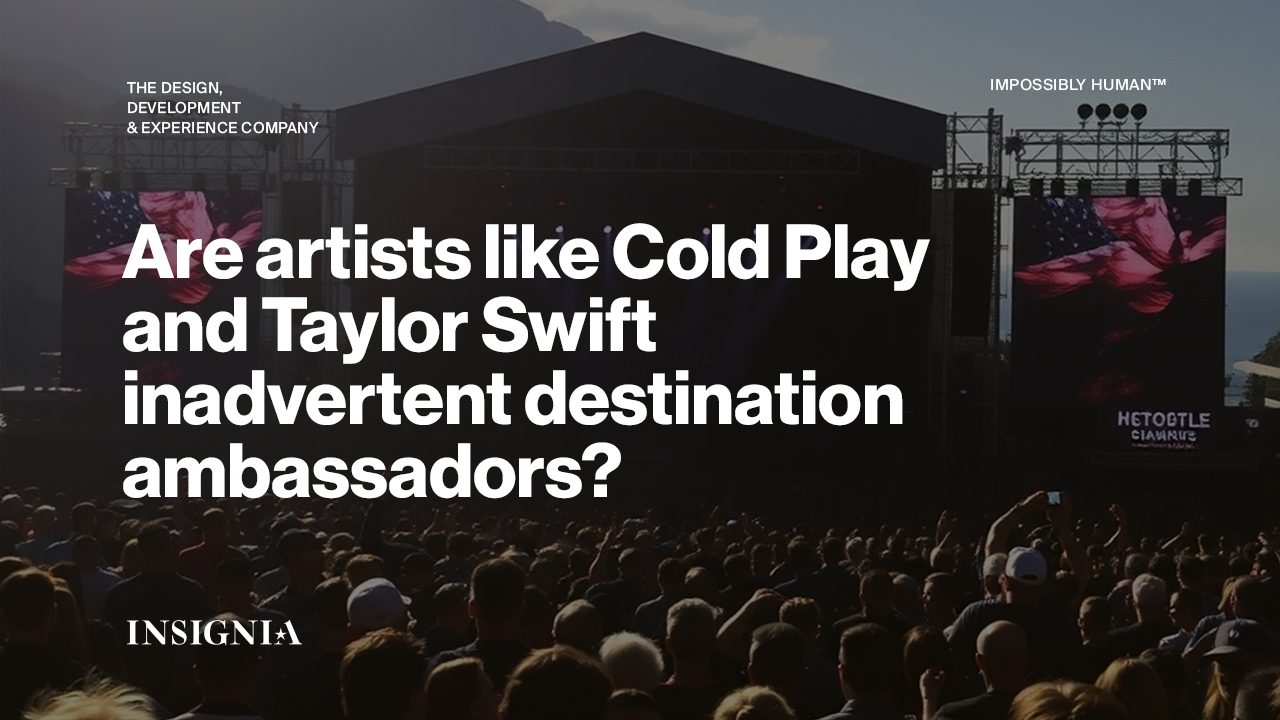Why events are a key tool in the destination marketing arsenal.
This week, Abu Dhabi will host Coldplay for four nights of sold-out concerts. The UAE capital is the only Middle East stop on the chart-topping British band’s World Tour—which puts it in prime position to benefit from the growing “gig tripping” trend.
Gig tourism and its impact
Gig tripping, or gig tourism, became a buzz-phrase in 2024, in large part thanks to Taylor Swift and her Era’s Tour, which saw thousands of fans booking travel, both regionally and internationally, to attend concerts. “The Taylor Swift impact” on the consumer economy was significant—the US leg of the tour generated over USD 5 billion in consumer spending. And a chunk of that change could be attributed to the tourism economy.
International bookings for Stockholm, for example, were up 136% during Swift’s tour dates compared to the same time the previous year. There was a 500% surge of Americans searching for Edinburgh on Airbnb on tour dates. Air New Zealand even added 2,000 additional seats to accommodate Swifties.
Importantly, travel planners reported receiving queries not just for flights and hotel rooms, but for extended trips and itineraries for concert-goers who wished to discover the destination beyond the stadium. No surprise, then, that it’s rumored Singapore paid handsomely to ensure it was the only Southeast Asian destination on Swift’s tour.
Abu Dhabi finds itself in a similar position now as the only city in its region hosting another tremendously popular act. It has been a fantastic opportunity for the destination to run clever targeted campaigns, and for hoteliers, travel agents and tourism brands to ready themselves to embrace the inevitable inbound audience.
Events drive tourism in the Middle East
While the buzz around “gig” or event tourism may have crescendo-ed, countries in the Gulf region have understood the powerful impact of events on destination marketing for some time. The Qatar FIFA World Cup was a case in point. It drove a surge of tourism infrastructure investment, and in many ways, it put the country on the map for international sports fans and travelers.
That did not go unnoticed: Saudi Arabia’s recent confirmation as host of the 2034 FIFA World Cup was a big win for a country that is deploying a multi-pronged approach to attracting international leisure visitors. Sports and entertainment remain key drivers. Las Vegas was famously known as the “Fight Capital of the World”, but lately the title has shifted to Riyadh, with highly anticipated encounters between Fury and Usyk, among others.
Saudi Arabia is also no stranger to gig tourism, since the launch of Soundstorm, the region’s largest electronic dance music festival five years ago, which attracts A-list performers from around the region and the world, who are followed by fans from around the world.
More imminently, the Kingdom will host Expo 2030, which is projected to lure 40 million visitors.
Travel shaped by passions
There was a time when a destination’s broad and objective appeal was its strength. While some places, like Rome, will continue to have their classic, year-round appeal, the way travelers make decisions has undergone a shift.
Recent studies find that a majority (on study says as high as 77%) of millennials and Gen-Zers let their hobbies, passions and interests drive their choice of where to travel. Sports enthusiasts travel to follow their teams or a sporting event; music lovers follow artists and music festivals; the artistically inclined attend biennales.
And they may just discover a new destination in the process.
Insignia Worldwide crafts new realities at the intersections of strategy and storytelling, by challenging what is humanly possible and creating what is Impossibly HumanTM
